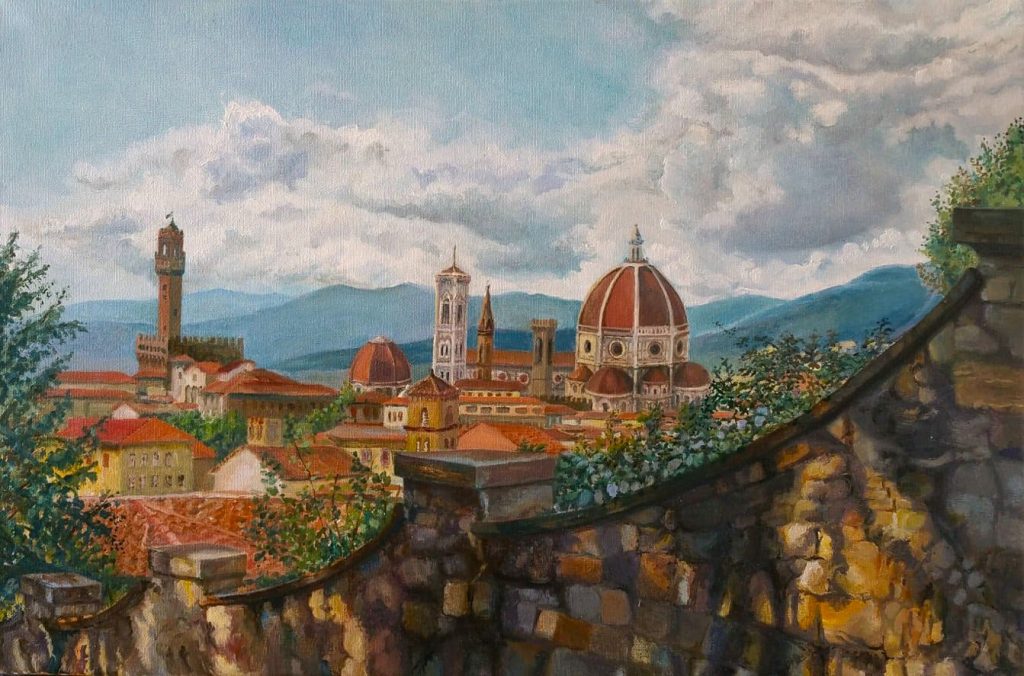
The title of this painting alludes to the famous phrase by Maestro Franco Zeffirelli:
Quando sento che mi prende la depressione, torno a Firenze a guardare la cupola del Brunelleschi: se il genio dell’uomo è arrivato a tanto, allora anche io posso e devo provare a creare, agire, vivere.
Probably, this is the paradox of Florence, that it makes everyone to feel as if it was their own home at the same instant when you are treading its territory. I had the same feeling, I felt a déjà vu when for the first time I found myself on the Santa María Novella train station and, some minutes later, I saw the Brunelleschi’s Cupola. Maybe, because of that many people say that Florence is a city that pertains to the whole world, since it is the birthplace of the Renaissance. For me, the Renaissance is the memory of my childhood with massive art history books…
The curious thing is that, though Florence belongs to everyone, each person can establish their own-and very intimate-relationship with the city. Thus, I feel power when contemplating it. Florence incites me to be reborn as a painter. Actually, I believe that your personal rebirth is something obligatory for an artist since it represents the process of internal struggle, due to which a new creative energy emerges. This possibility to be reborn, to resurrect means for me to surpass yourself. A visionary artist should have such an attitude.
If I’m not strong enough to continue, it is enough to gaze Florence’s landscape. For example, from the shady steps of Giardino delle rose (the Rose Garden). Since Florence inspires so many people, everyone can nd in its landscape a sacred corner: it is sucient to stare down on a curve of the mountains, to harbor in a room with wood blinds or to guess the secret of the alchemist’s raw material that is hidden in the Basilica di San Lorenzo. In either case, the landscape depicted in the painting, just like the great Brunelleschi’s Cupola, maintains its mystery. Therefore, this painting means for me something to depart from and to return to.
Independently of how experimental you are in your art, classical art is all about innovation. Recalling a poem by a Russian poet Osip Mandelstam,
… and again a skald will compose a foreign song and will utter it as his own,
I would conclude by saying that this landscape is my source of inspiration, a place to shelter and to gather strength in order to create something new that would be a part of an eternal rethinking, which is art.
